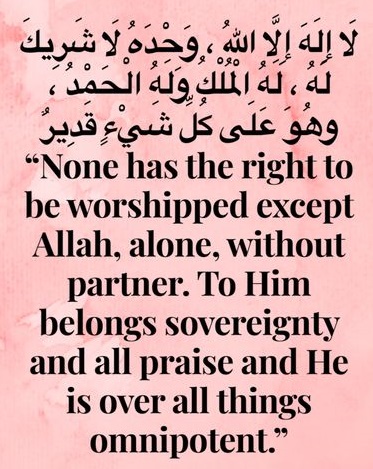Lailat-ul Qadr
Among the nights of Ramadan is one special night, Laylatyul Qadr (Night of Decree) it was the night the Quran was sent down and worship during the laylatul Qadr is equivalent to worship performed for a period of one thousand months (83 years). It is the night the Angles descend in abundance and as narrated by
Abu Hurairah (radhi Allaahu anhu) that the Messenger of Allaah (Sallallaahu ‘alaihi wa Sallam) said: “Whoever performs the night prayer on the night of Al-Qadr with Eemaan (firm belief) and seeking reward will have all his past sins forgiven.” (Bukhari and Muslim)
`Aishah (May Allah be pleased with her) reported: The Messenger of Allah (sallallaahu alayhi wa sallam) used to seclude himself (in the mosque) during the last ten nights of Ramadan. He would say, “Search for Lailat-ul-Qadr (Night of Decree) in the last ten nights of Ramadan.” [Al-Bukhari and Muslim].
The Night of Decree (Laylatul Al-Qadr) occurs in the last ten nights of Ramadaan during odd nights (i.e. 21st, 23rd, 25th, 27th or 29th) and this is based on the Prophet’s (Sallallaahu ‘alaihi wa Sallam) saying: “Search for the Night of Al-Qadr in the odd nights of the last ten nights of Ramadaan.” [Al-Bukhaaree]
The best dua to supplicate on Laylatul Qadr and the last ten nights is

It’s reported that Aishah (Radiyallahu anha) said “O Messenger of Allah! If I find the Night of Al-Qadr what should I say?” He (sallallaahu ‘alaihi wa sallam) replied,
Say : “O Allah! Verily You are the Oft-Pardoning, You love to pardon, so pardon me.” [Ahmad 6:182]
Before supplicating it’s from the etiquette’s to praise Allaah (subhanahu wa ta’alaa and send salawaat to the prophet (sallaahu alaihi wasallam)
Al-Tirmidhi (3476) narrated that Fadaalah ibn ‘Ubayd (may Allaah be pleased with him) said: Whilst the Messenger of Allaah (peace and blessings of Allaah be upon him) was sitting, a man came in and prayed and said, “O Allaah, forgive me and have mercy on me.” The Messenger of Allaah (sallaahu alaihi wasallam) said, “You have been too hasty, O worshiper. When you have prayed and are sitting, praise Allaah as He deserves to be praised, and send blessings upon me, then call upon Him.” According to another version (3477): “When one of you prays, let him start with praise of Allaah, then let him send blessings upon the Prophet (peace and blessings of Allaah be upon him), then let him ask whatever he likes after that.” Then another man prayed after that, and he praised Allaah and sent blessings upon the Prophet (peace and blessings of Allaah be upon him). The Prophet (peace and blessings of Allaah be upon him) said: “O worshiper, ask and you will be answered.” Classed as saheeh by al-Albaani in Saheeh al-Tirmidhi, 2765, 2767.
Dua of Yunus (Alaihi salaam) is one of the greatest dua.

We should ask of Allaah by His most beautiful names.
“And (all) the Most Beautiful Names belong to Allaah, so call on Him by them, and Disregard those who blasheme his names . They will be rapaid for what they used to do ” [al-A’raaf 7:180]

Being in a state of humbleness with hope and fear
“Invoke your Lord with humility and in secret” [al-A’raaf 7:55]
Having firmness, sincerity and determination
when making dua and not saying inshaa Allaah, Allah will accept it.
The Prophet (peace and blessings of Allaah be upon him) said: “Call upon Allaah when you are certain of a response, and remember that Allaah will not answer a du’aa’ that comes from a negligent and heedless heart.” Narrated by al-Tirmidhi, 3479; classed as hasan by Shaykh al-Albaani in Saheeh al-Tirmidhi, 2766.
Asking frequently
The Prophet (peace and blessings of Allaah be upon him) said: “The slave will receive a response so long as his du’aa’ does not involve sin or severing of family ties, and so long as he is not hasty.” It was said, “What does being hasty mean?” He said: “When he says, ‘I made du’aa’ and I made du’aa’, and I have not seen any response,’ and he gets frustrated and stops making du’aa’.” Narrated by al-Bukahari, 6340; Muslim, 2735.
